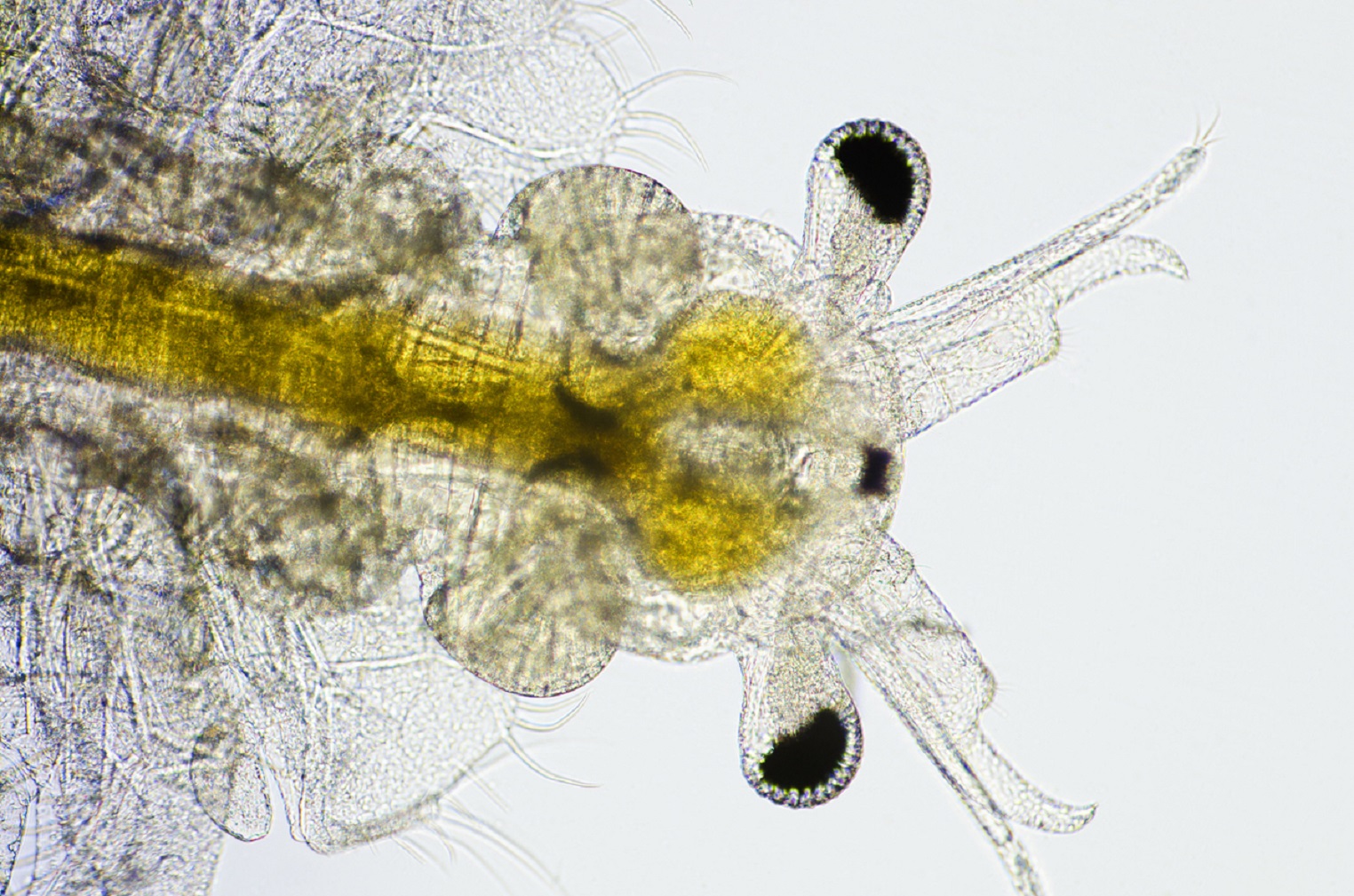Creating a Model Ecosystem with Brine Shrimps: a Science Club Activity
Resource
Have you ever thought of making a model planet where the ecosystem is almost closed to everything except light?
You can do this in a bottle.
One ecosystem that will run for months on a warm, sunny windowsill is a shrimp-world using Artemia – the Californian brine shrimp. These little crustaceans are fun. They swim upside down and often go about in pairs with the male mate-guarding the female. The ecosystem runs on the energy of sunlight and the materials in the bottle which are recycled. Algae are the key producers fixing carbon dioxide and producing oxygen. The shrimps consume oxygen, produce carbon dioxide and eat the algae. When the shrimps die they rot and their remains are decomposed by bacteria. The algae use the minerals released by decomposition.
This bottle planet has all the components of our world, an atmosphere, biosphere, hydrosphere and lithosphere. On the windowsill of your classroom it’s a great asset to helping children think about ecology. What is mystifying is that the tiny algae – the plant world – are almost invisible to children and this means that they really have to think hard about how the shrimp world works.
Stephen Tomkins & Michael Dockery, and the British Ecological Society has created a wonderful resource developing this original idea:
“The book provides thirteen starting points for ecological investigations in the school laboratory with photocopiable worksheets, teachers notes, secondary data exercises, technicians guide and background information together with brine shrimp eggs and enough bacterial and algal innoculum to start off your first ecosystem in a bottle. Especially developed for secondary science at Keystages 3 and 4 (where ecology particularly needs livening up) and Scottish Science stages S1 to S4, the book is nevertheless full of ideas and resources for primary science and for post 16 biology projects. Children and young people (of any age!) find a bottle ecosystem with brine shrimps, algae and bacteria fascinating and it is a useful focus for a discussion.”
Download the full resource from the British Ecological Society website.
Blades Biological and Darwin Biological can supply the brine shrimps and algal cultures: